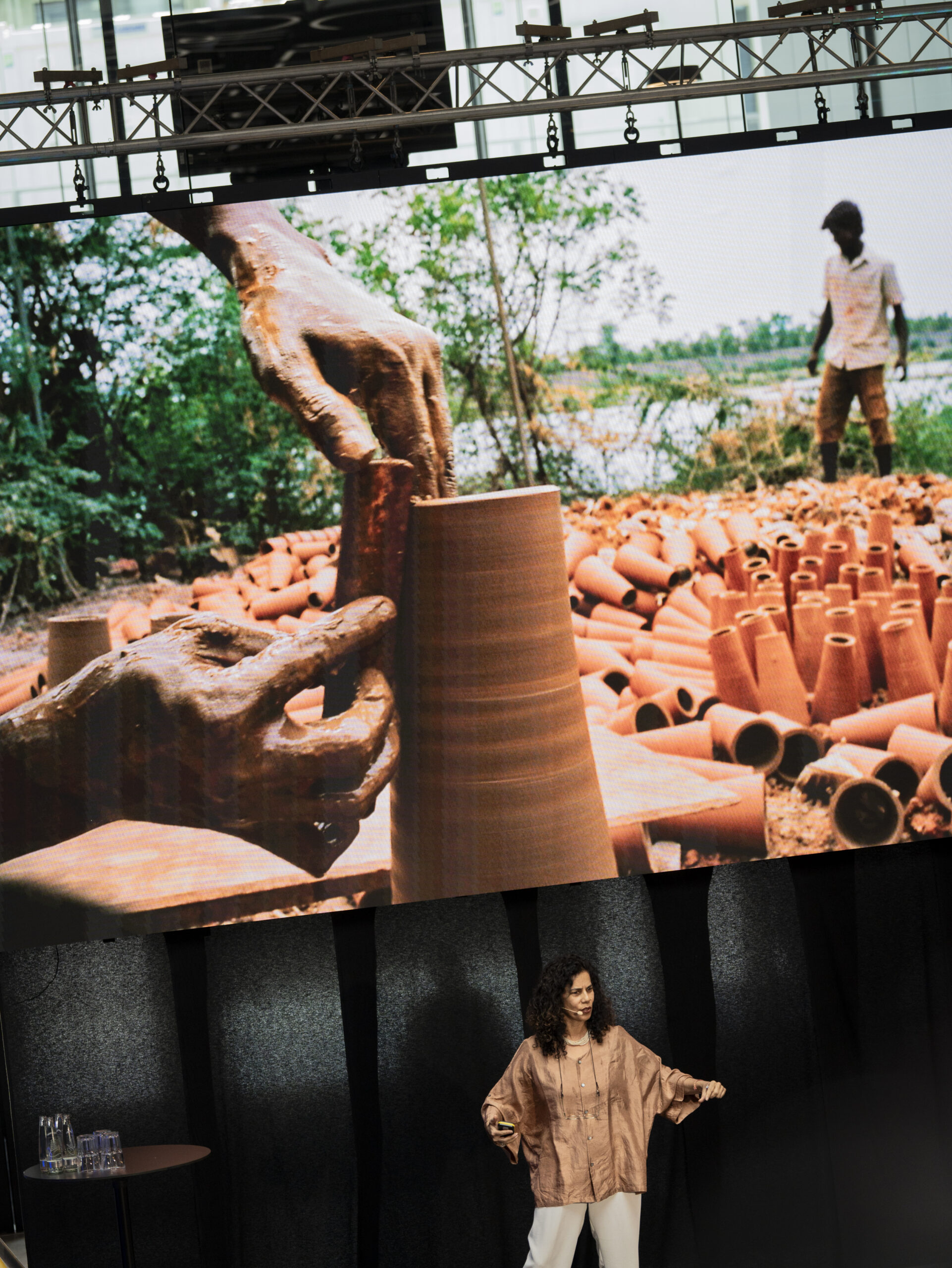“In times of crisis, business cannot go on as usual – isn’t that good news?” she remarked, highlighting how disruption creates the chance to dismantle outdated structures. Unlike Germany, India cannot afford stagnation. As the world’s largest democracy experiences rapid growth, its transformations are far more radical and on a much larger scale than those in Europe. Currently a professor at TU Berlin, Kundoo’s work is remarkable. She researches traditional construction techniques and natural, locally available building materials such as bamboo and clay. Her projects actively involve local communities in the design and construction process. By tapping into the wealth of knowledge held by skilled workers – long dismissed as unskilled labourer due to colonial legacies – she demonstrates how traditional, sustainable building methods can address contemporary challenges.

“I often ask myself in the first world, when we call even something a problem, I ask, is it really a problem? Or is it just a little bit of an inconvenience to step out of your comfort zone.”
Anupama Kundoo, AM 24
About:
Anupama Kundoo is an internationally renowned Indian architect and professor. She first gained recognition through her work in Auroville (India), where she designed and realized many economically innovative, energy and water efficient buildings from mid-1990 to 2002. Her “Wall House” was shown at the Venice Architecture Biennale in 2012. A major exhibition at the Louisiana Museum of Modern Art was dedicated to the architect’s work in 2020. Kundoo was also part of the Chicago Architecture Biennial in 2023.
Anupama Kundoo has taught architecture and urban planning at various international universities, including TU Berlin and the AA School of Architecture in London.
She has received numerous awards for her architectural work, such as the Auguste Perret Prize 2021 for architectural technology, the global Building Sense Now 2021 award from the German Sustainable Building Council (DGNB), and the Global Award for Sustainable architecture under the auspices of UNESCO in 2022.